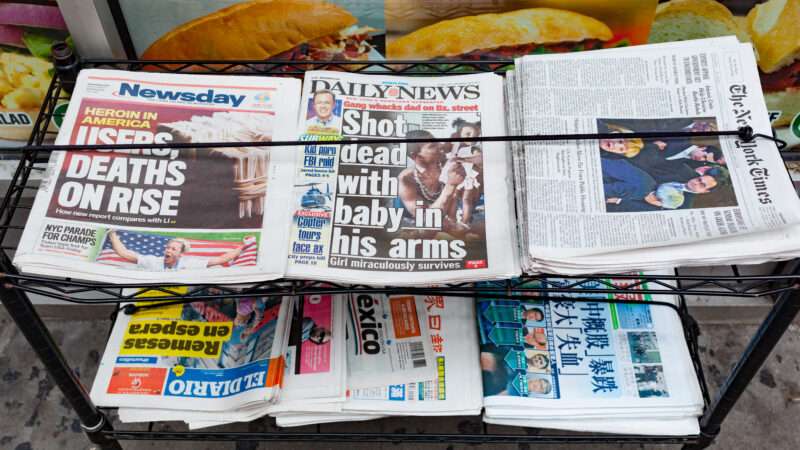
“The present state,” the editors wrote, “seemed to require some extraordinary effort in the cause of freedom.”
The writers linked what they described as the sorry state of the world to the deteriorated state of the press. “There have been times when such a condition of affairs would not have occurred, and in which, if it had occurred, it would not have been long endured.” In those earlier days, “an unpurchased, unshackled press existed,” and editors “breathed the spirit of freedom.”
Among the problems requiring the editors’ effort were runaway taxing and spending, creating a drag on the economy. “The weight of taxation, and an obstinate adherence on the part of Ministers to the same profligate waste of the national resources…precludes all hope of returning prosperity,” the editors wrote.
They saw an opening “for a firm, stanch, and resolute assertion of public freedom.” They “resolved to exert ourselves to answer that call, and to execute to the best of our zeal and talents, a task more requisite to the liberation and happiness of mankind, than any other.”
The quotes are from a “To Our Readers” message on the front page of the Sunday, October 20, 1822, of The Sunday Times of London. They were republished Sunday, October 16, 2022, for the 200th anniversary edition of that newspaper.
The message is striking for being applicable today just as it was two centuries ago. Beyond that, what’s lovely is the understanding is that asserting the freedom necessary for the “liberation and happiness of mankind” is the responsibility of the newspaper. The editors aren’t waiting on the sidelines wishing to be rescued by some brave politician. They understand that it is their own job to lead the way.
The illustration elsewhere in Sunday’s Times makes the same point. It does not feature a collection of Times reporters chasing the news, nor does it portray the editors serving as dutiful stenographers to powerful newsmakers. Rather, it pictures a crowd of caricatures of British Prime Ministers all gathered together reading the paper.
The image was a reminder of the ups and downs of that cause of freedom over the past two centuries, and of the important role that Great Britain has played. There is Winston Churchill, whose courage and determination helped to defeat Adolf Hitler in World War II. There is Margaret Thatcher, who helped to rebuild the British economy from the socialist slump by transforming it in the direction of freer markets. There is Boris Johnson, the champion of Brexit, who helped to liberate the United Kingdom from the oppression of Brussels-based European Union bureaucrats.
Newspapers surely deserve some of the credit for the considerable expansion of freedom over the past 200 years—from Frederick Douglass’s North Star in the fight against slavery, to the role of The Wall Street Journal editorial page under Robert L. Bartley in winning the Cold War, to the journalistic work of Theodor Herzl and Vladimir Jabotinsky that paved the way for a Jewish state in the land of Israel, to Milton Friedman’s 121 Journal opinion pieces and 300 columns in Newsweek that helped make the case for economic freedom.
The corollary to that, however, is that when freedom has been in retreat worldwide over the past decade or more—as the watchdog group Freedom House says it has been—then part of the blame belongs, also, to a press that has lost its credibility. Some press outlets have sold out, chasing declining revenues or idolizing partisan political figures instead of breathing the spirit of freedom.
The Sunday Times itself, like so many legacy newspapers, is in a diminished state. Its print circulation is far below its historic peak, and its journalistic reputation, in a crowded market, is less than what it was in its glory days from 1967 to 1981 under editor Harold Evans. The media mogul who controls it, Rupert Murdoch, is considering consolidating it and his other newspapers, including the Journal, now housed within News Corp., with Fox, the company that includes Fox News and Fox Sports.
If the current conditions are to improve, it will, today too, require “extraordinary effort in the cause of freedom” from a range of news organizations—200-year-old ones, younger publications, and new ones yet to be founded. The technology has changed, but two centuries later, the “liberation and happiness” of humankind depends as surely as it ever has on “a firm, stanch, and resolute assertion of public freedom.”
The post The Press Idolizes Politicians. Instead, It Needs To Hold Them Accountable. appeared first on Reason.com.
from Latest https://ift.tt/EztuU3G
via IFTTT